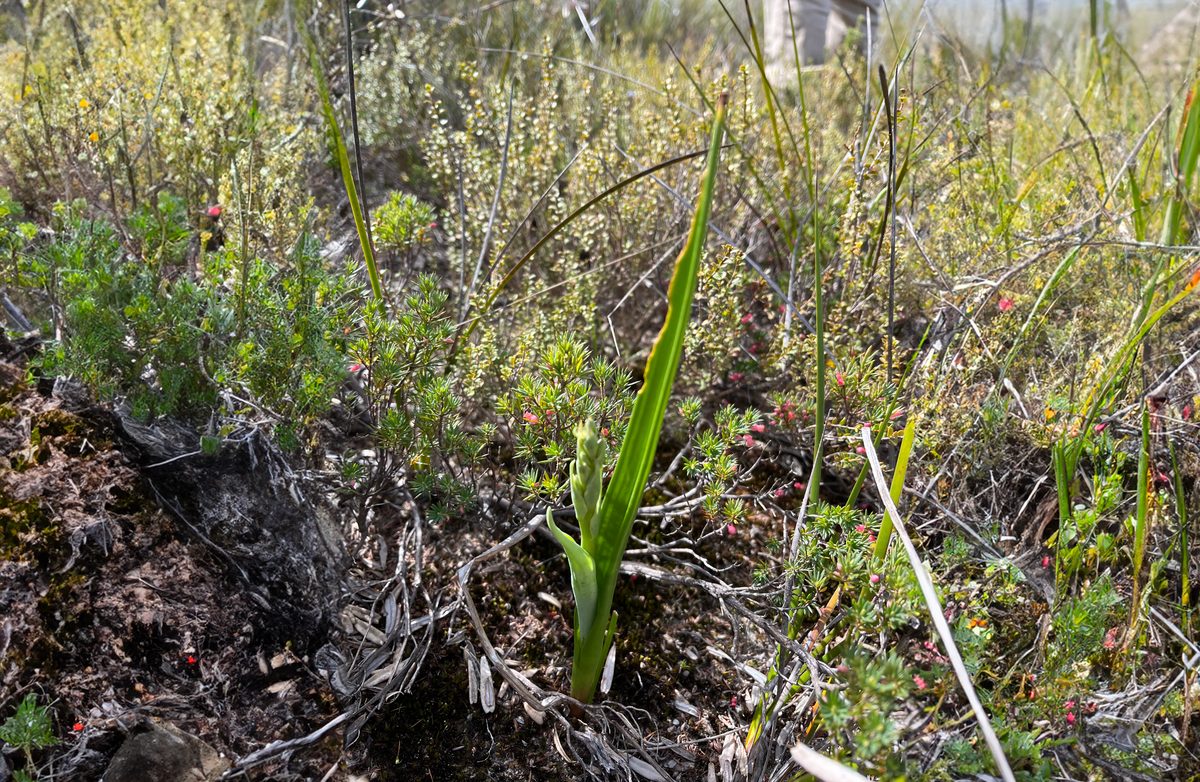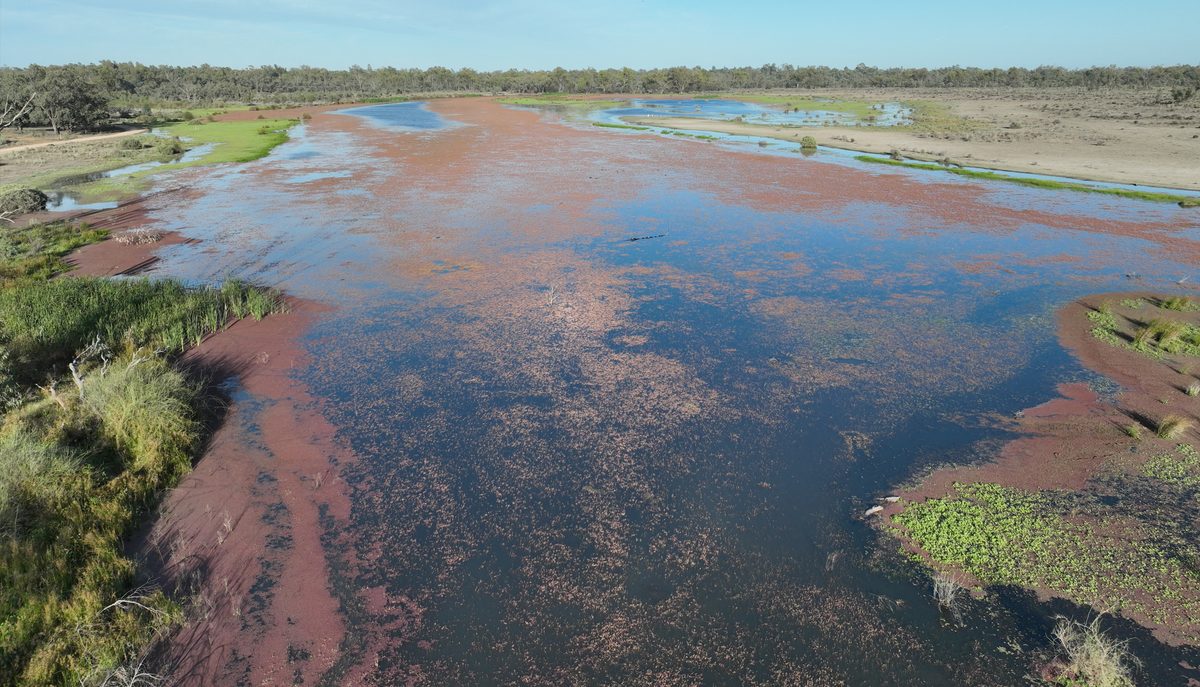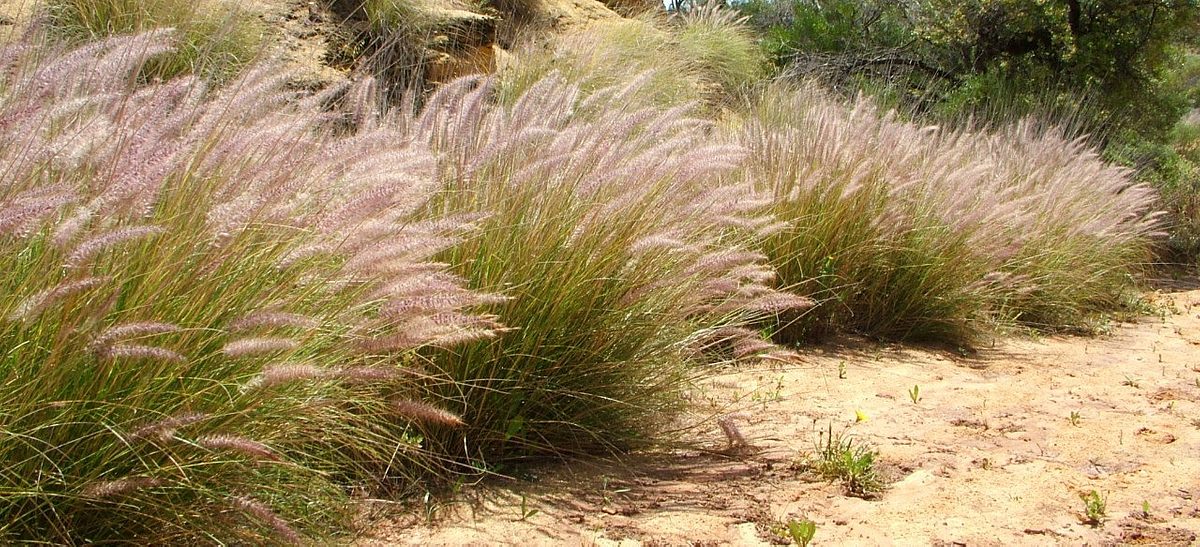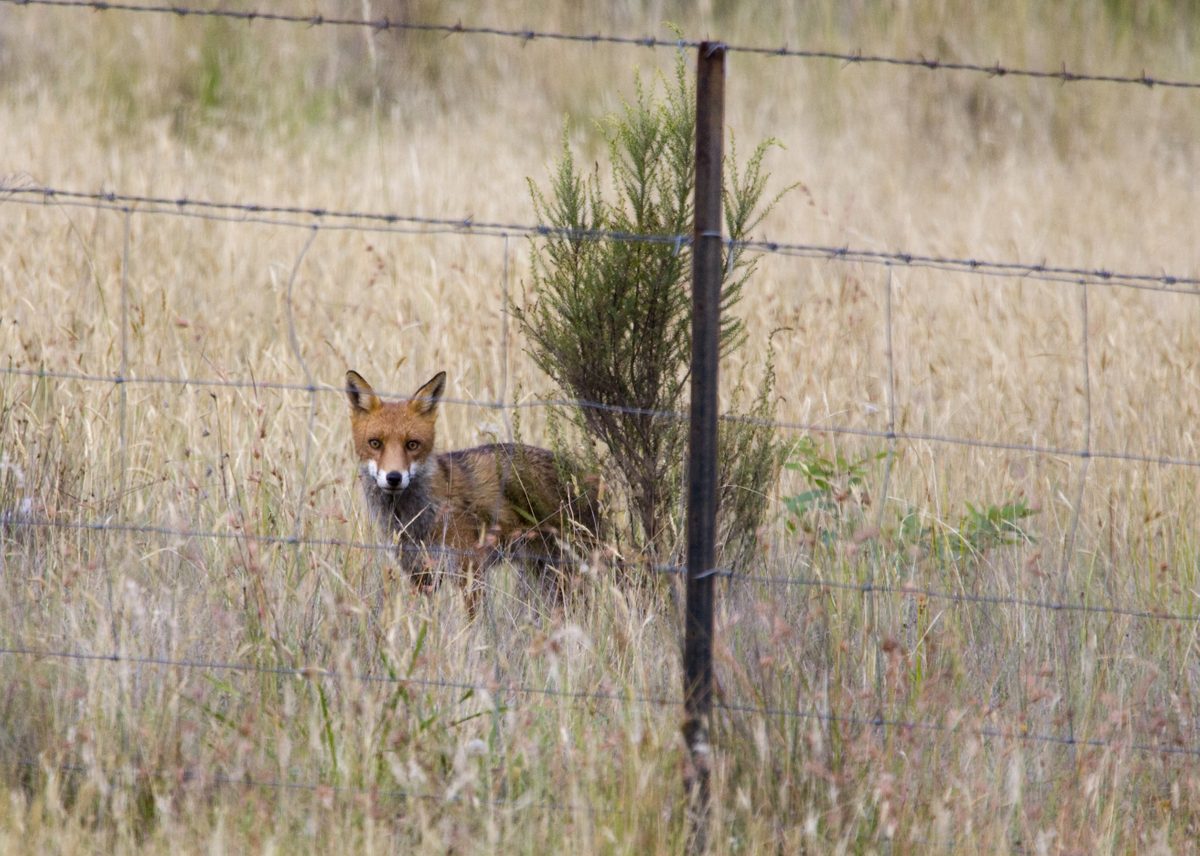Saving a Nationally Endangered Orchid by Waging War on Weeds
An important population of a nationally endangered native orchid at Meningie is being protected thanks to the efforts of local landholders and the Murraylands and Riverland Landscape Board.

The community of metallic sun orchids (Thelymitra epipactoides) on the Meningie Motorcycle Club grounds and adjacent council-owned parklands is one of the largest in the Murraylands and Riverland region. The site has been monitored by the landscape board since 2017, but more recent inspections revealed increasing weed competition, prompting stronger conservation action.
While landholders are responsible for controlling declared weeds on property under the Landscape Act 2019, the landscape board prioritises and supports control works to conserve particularly rare or threatened species.
Threatened Plant Ecologist Victoria Hefford said that a detailed weed survey was the first step in the conservation process.
“Once we understood the spread and concentration of weeds in the area, we designed a weed management plan to tackle the outbreaks”.
“Three priority areas containing a mix of gazania, non-indigenous Acacias and non-native pines will be targeted. These weeds will be controlled through a combination of foliar spraying, hand-pulling, and cutting and swabbing,” she added.
Weed control works will be undertaken by contractors this spring, with ongoing works and monitoring planned to ensure control efforts are successful.
There are less than 500 metallic sun orchids in the Murraylands and Riverland region, and the Meningie site hosts the largest known natural population. Historically, weed control on the site has focussed on African boxthorn, gazanias, freesia and bridal creeper.
Brian Lund, a board member with the Murraylands and Riverland Landscape Board, said that it was important that sites containing the rare orchid were given priority weed control.
“Ensuring that rare native flora species are adequately protected is essential so they remain an important part of the local ecological system”.
Mr Lund said that work to conserve the native orchid served as an important reminder about the role the community plays in protecting the environment.
“Pest management is necessary for conserving rare, native species, and it also plays a significant role in protecting local agriculture. Everyone in the region contributes to protecting threatened native species such as the metallic sun orchid, simply by ensuring that they undertake regular pest and weed control on their properties”.
Landholders who need advice about pest animal and weed control should contact the Murraylands and Riverland Landscape Board to find out about the support and services available.
This project is supported by the Murraylands and Riverland Landscape Board through the landscape levies.



